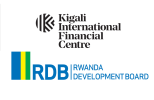The Role of Foreign Investment in Africa
The African economy is a vibrant and evolving landscape. It’s a region that’s attracting increasing attention from global investors.

Foreign investment plays a crucial role in this context. It’s a key driver of economic growth and development across the continent.
Yet, the dynamics of foreign investment in Africa are complex. They encompass a range of sectors, from technology to natural resources, and vary widely across countries.
This article delves into the role of foreign investment in Africa. It explores its impact on the African economy and the potential it holds for the future.
Whether you’re an investor, a business professional, or simply interested in economic development, this article offers valuable insights. It provides a comprehensive overview of the African economy and the role of foreign investment in shaping its trajectory.
The Current State of the African Economy
The African economy is diverse and dynamic. It’s composed of 54 countries, each with its unique economic profile.
Some nations, like Nigeria and South Africa, have large, well-developed economies. Others, like Ethiopia and Rwanda, are emerging as fast-growing economies.
Despite challenges, Africa has shown resilience. It has maintained positive growth rates over the past decade.
However, the continent still faces significant economic hurdles. These include poverty, unemployment, and infrastructure deficits. Yet, these challenges also present opportunities for transformative foreign investment.
The Potential of African Markets
Africa’s markets are brimming with potential. They offer a wealth of opportunities for foreign investors.
The continent is home to some of the world’s fastest-growing economies. This growth is driven by a young, dynamic population and increasing urbanization.
Moreover, Africa’s vast natural resources offer immense investment opportunities. These range from minerals and oil to agriculture and renewable energy.
However, realizing this potential requires overcoming certain challenges. These include improving governance, enhancing infrastructure, and fostering a conducive business environment.
Foreign Direct Investment (FDI) and African Economic Growth
Foreign Direct Investment (FDI) plays a crucial role in Africa’s economic growth. It brings in much-needed capital for development.
FDI also fosters technology transfer and innovation. This helps to boost productivity and competitiveness in African markets.
Moreover, FDI can stimulate job creation and skills development. This contributes to poverty reduction and social development.
However, the benefits of FDI are not automatic. They depend on the quality of investments and the ability of African economies to effectively absorb and utilize them.
Identifying the African Largest Economy and Investor Attraction
Nigeria, South Africa, and Egypt are among the largest economies in Africa. They attract a significant share of FDI.
Nigeria, rich in oil and gas, is a magnet for energy-focused investors. Its large population also offers a vast consumer market.
South Africa, known for its mining sector, attracts investors with its advanced infrastructure and strong institutions. It serves as a gateway to other African markets.
Egypt, with its strategic location and diversified economy, draws in investors. Its reforms have improved the business environment.
However, investor attraction is not limited to these economies. Other African countries also offer unique investment opportunities.
Trends in FDI Flows to Africa
FDI flows to Africa have shown varied trends over the years. They are influenced by global economic conditions and domestic factors.
In recent years, there has been a shift towards non-extractive sectors. These include consumer goods, retail, and technology.

However, the COVID-19 pandemic has caused a dip in FDI. It has disrupted global supply chains and investor confidence.
Despite this, the long-term outlook for FDI in Africa remains positive. The continent’s vast potential continues to attract investors.
Key Sectors Attracting Foreign Investment in Africa
Foreign investment in Africa is not limited to one sector. It spans across various industries.
The technology sector is gaining traction. It is driven by the continent’s digital transformation and growing tech-savvy population.
Infrastructure is another key sector. It attracts significant investment due to Africa’s infrastructural development needs.
Natural resources continue to draw investors. Despite a shift towards non-extractive sectors, mining and oil remain significant.
Lastly, agriculture is a sector of interest. It is due to Africa’s vast arable land and the need for food security.
The Impact of Foreign Investment on Employment and Skills Development
Foreign investment plays a crucial role in job creation in Africa. It provides direct and indirect employment opportunities.
Direct jobs are created in the companies receiving the investment. Indirect jobs are generated in local businesses supplying goods and services.
Foreign investment also aids in skills development. It exposes local employees to international best practices and advanced technologies.
However, the quality of jobs created is a concern. It is essential to ensure that jobs offer decent wages and working conditions.
In conclusion, foreign investment can contribute significantly to employment and skills development in Africa.
Case Studies: Success Stories of Foreign Investment in Africa
Several foreign investments have had a positive impact on the African economy. Let’s look at a few examples.
In Ethiopia, Chinese investment in the shoe industry has created thousands of jobs. It has also helped to boost the country’s exports.
In Kenya, foreign investment in the renewable energy sector has been a success. It has increased the country’s energy capacity and reduced reliance on fossil fuels.
In Rwanda, foreign investment in the tech sector has spurred innovation. It has also helped to position the country as a tech hub in Africa.
These case studies show the potential of foreign investment to drive economic growth in Africa.
Challenges and Risks for Foreign Investors in African Markets
Investing in African markets is not without its challenges. One of the main issues is political instability.
In some countries, changes in government can lead to policy shifts. This can create uncertainty for investors.
Corruption is another major challenge. It can increase the cost of doing business and create an uneven playing field.
Infrastructure deficits can also pose a problem. Poor roads, unreliable electricity, and inadequate ports can hinder business operations.
Despite these challenges, many investors are finding ways to navigate the African market. They see the potential rewards as outweighing the risks.
The Future of Foreign Investment in Africa
The future of foreign investment in Africa looks promising. With a young and growing population, the continent offers a vast market potential.
Moreover, ongoing reforms in many African countries are improving the business environment. This is attracting more foreign investors.
However, for sustainable growth, investments need to be channeled into sectors that can drive long-term development. This includes areas like technology, education, and renewable energy.


 by Matthew Moloney (https://unsplash.com/@mattmoloney)
by Matthew Moloney (https://unsplash.com/@mattmoloney) by Yasmine Arfaoui (https://unsplash.com/@yasmine_photo)
by Yasmine Arfaoui (https://unsplash.com/@yasmine_photo) by Mathew Schwartz (https://unsplash.com/@cadop)
by Mathew Schwartz (https://unsplash.com/@cadop) by Harshil Gudka (https://unsplash.com/@hgudka97)
by Harshil Gudka (https://unsplash.com/@hgudka97) by Marek Studzinski (https://unsplash.com/@jccards)
by Marek Studzinski (https://unsplash.com/@jccards) by Patrick Tomasso (https://unsplash.com/@impatrickt)
by Patrick Tomasso (https://unsplash.com/@impatrickt) by Hu Chen (https://unsplash.com/@huchenme)
by Hu Chen (https://unsplash.com/@huchenme) by Tobi Oshinnaike (https://unsplash.com/@magicconceptstudio)
by Tobi Oshinnaike (https://unsplash.com/@magicconceptstudio) by Annie Spratt (https://unsplash.com/@anniespratt)
by Annie Spratt (https://unsplash.com/@anniespratt) by Mike Tinnion (https://unsplash.com/@m15ky)
by Mike Tinnion (https://unsplash.com/@m15ky) by Alex Block (https://unsplash.com/@alexblock)
by Alex Block (https://unsplash.com/@alexblock) by Eyoel Kahssay (https://unsplash.com/@eyoelkahssay)
by Eyoel Kahssay (https://unsplash.com/@eyoelkahssay) by Austin Distel (https://unsplash.com/@austindistel)
by Austin Distel (https://unsplash.com/@austindistel) by Oladimeji Odunsi (https://unsplash.com/@oladimeg)
by Oladimeji Odunsi (https://unsplash.com/@oladimeg) by Ninno JackJr (https://unsplash.com/@ninnojackjr)
by Ninno JackJr (https://unsplash.com/@ninnojackjr) by Will Shirley (https://unsplash.com/@willshirley)
by Will Shirley (https://unsplash.com/@willshirley) by Johannes Plenio (https://unsplash.com/@jplenio)
by Johannes Plenio (https://unsplash.com/@jplenio) by Tierra Mallorca (https://unsplash.com/@tierramallorca)
by Tierra Mallorca (https://unsplash.com/@tierramallorca) by Annie Spratt (https://unsplash.com/@anniespratt)
by Annie Spratt (https://unsplash.com/@anniespratt) by Uriel Soberanes (https://unsplash.com/@soberanes)
by Uriel Soberanes (https://unsplash.com/@soberanes) by Will Shirley (https://unsplash.com/@willshirley)
by Will Shirley (https://unsplash.com/@willshirley) by Annie Spratt (https://unsplash.com/@anniespratt)
by Annie Spratt (https://unsplash.com/@anniespratt) by NOAA (https://unsplash.com/@noaa)
by NOAA (https://unsplash.com/@noaa) by Wade Lambert (https://unsplash.com/@wade_lambert)
by Wade Lambert (https://unsplash.com/@wade_lambert) by Casey Allen (https://unsplash.com/@westbeach013)
by Casey Allen (https://unsplash.com/@westbeach013) by sutirta budiman (https://unsplash.com/@sutirtab)
by sutirta budiman (https://unsplash.com/@sutirtab) by Ninno JackJr (https://unsplash.com/@ninnojackjr)
by Ninno JackJr (https://unsplash.com/@ninnojackjr) by Rui Silvestre (https://unsplash.com/@ruisilvestrecreative)
by Rui Silvestre (https://unsplash.com/@ruisilvestrecreative) by George Brits (https://unsplash.com/@georgebrits_cableandgrain)
by George Brits (https://unsplash.com/@georgebrits_cableandgrain) by Annie Spratt (https://unsplash.com/@anniespratt)
by Annie Spratt (https://unsplash.com/@anniespratt) by Annie Spratt (https://unsplash.com/@anniespratt)
by Annie Spratt (https://unsplash.com/@anniespratt) by Harshil Gudka (https://unsplash.com/@hgudka97)
by Harshil Gudka (https://unsplash.com/@hgudka97) by British Library (https://unsplash.com/@britishlibrary)”
by British Library (https://unsplash.com/@britishlibrary)” by Will Shirley (https://unsplash.com/@willshirley)”
by Will Shirley (https://unsplash.com/@willshirley)” by sutirta budiman (https://unsplash.com/@sutirtab)
by sutirta budiman (https://unsplash.com/@sutirtab) by George Brits (https://unsplash.com/@georgebrits_cableandgrain)
by George Brits (https://unsplash.com/@georgebrits_cableandgrain) by Naman Sood (https://unsplash.com/@lcshutter)
by Naman Sood (https://unsplash.com/@lcshutter) by Lei Jiang (https://unsplash.com/@lj333)
by Lei Jiang (https://unsplash.com/@lj333) by Corinne Kutz (https://unsplash.com/@corinnekutz)
by Corinne Kutz (https://unsplash.com/@corinnekutz) by Alexandr Bormotin (https://unsplash.com/@bormot)
by Alexandr Bormotin (https://unsplash.com/@bormot) by Uriel Soberanes (https://unsplash.com/@soberanes)
by Uriel Soberanes (https://unsplash.com/@soberanes) by Filip Mroz (https://unsplash.com/@mroz)
by Filip Mroz (https://unsplash.com/@mroz) by Nik Shuliahin 💛💙 (https://unsplash.com/@tjump)
by Nik Shuliahin 💛💙 (https://unsplash.com/@tjump) by Lina Loos (https://unsplash.com/@linaloos)
by Lina Loos (https://unsplash.com/@linaloos) by Wade Lambert (https://unsplash.com/@wade_lambert)
by Wade Lambert (https://unsplash.com/@wade_lambert) by sutirta budiman (https://unsplash.com/@sutirtab)
by sutirta budiman (https://unsplash.com/@sutirtab) by sutirta budiman (https://unsplash.com/@sutirtab)
by sutirta budiman (https://unsplash.com/@sutirtab) by Robert Kalinagil (https://unsplash.com/@robgun)
by Robert Kalinagil (https://unsplash.com/@robgun) by Uta Scholl (https://unsplash.com/@uta_scholl)
by Uta Scholl (https://unsplash.com/@uta_scholl) by NordWood Themes (https://unsplash.com/@nordwood)
by NordWood Themes (https://unsplash.com/@nordwood) by Igor Son (https://unsplash.com/@igorson)
by Igor Son (https://unsplash.com/@igorson) by Pawel Nolbert (https://unsplash.com/@hellocolor)
by Pawel Nolbert (https://unsplash.com/@hellocolor) by Emmanuel Ikwuegbu (https://unsplash.com/@emmages)
by Emmanuel Ikwuegbu (https://unsplash.com/@emmages) by British Library (https://unsplash.com/@britishlibrary)
by British Library (https://unsplash.com/@britishlibrary) by Sergey Pesterev (https://unsplash.com/@sickle)
by Sergey Pesterev (https://unsplash.com/@sickle) by Ales Nesetril (https://unsplash.com/@alesnesetril)
by Ales Nesetril (https://unsplash.com/@alesnesetril) by Will Shirley (https://unsplash.com/@willshirley)
by Will Shirley (https://unsplash.com/@willshirley) by Haydn Golden (https://unsplash.com/@goldensson)
by Haydn Golden (https://unsplash.com/@goldensson) by Mathieu Stern (https://unsplash.com/@mathieustern)
by Mathieu Stern (https://unsplash.com/@mathieustern) by Markus Spiske (https://unsplash.com/@markusspiske)
by Markus Spiske (https://unsplash.com/@markusspiske) by Ross Findon (https://unsplash.com/@rossfindon)
by Ross Findon (https://unsplash.com/@rossfindon) by Tomasz Frankowski (https://unsplash.com/@sunlifter)
by Tomasz Frankowski (https://unsplash.com/@sunlifter)










































